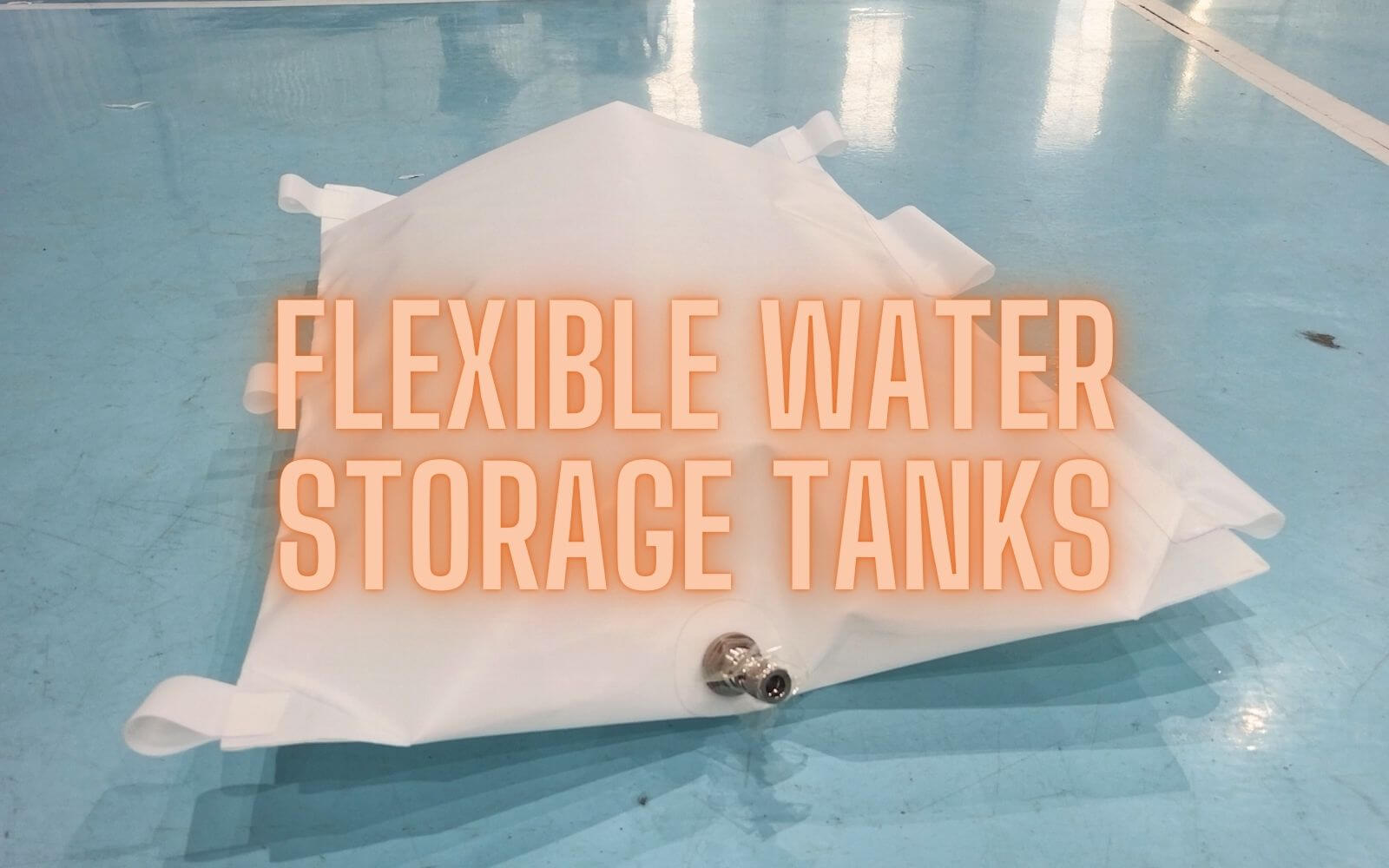FLEXIBLE WATER STORAGE TANKS
As the demand for efficient and portable water storage solutions increase, flexible water storage tanks have become a straight light in the storage container filed for industries worldwide. These innovative liquid storage tanks design to meet the needs of modern various applications, offering a unique storage method combining features of portability, durability, and advanced technology.
From residential working, military operations to disaster relief, flexible water tanks are revolutionizing the way we work on store and transport water. Let’s explore the latest innovations in this field and how they’re shaping the future of water storage.
What Are Flexible Water Tanks?
Flexible water storage tanks are collapsible, portable containers used high-quality materials like 3-layers strong PVC or TPU. Unlike traditional rigid tanks, these tanks can fold and roll-up when empty, making them to have remarkable space-efficient for storage and transport. When needed, they can do quickly deployment by simply unfolding and filling them with water.
Their unique design allows them to be used in a wide range of applications and environments, from remote construction sites to disaster-stricken areas. With advantage in innovative technology, these tanks are now more customizible, more durable, and more versatile than ever before.
Key Innovations in Flexible Bladders Technology
Advanced Materials:
Modern flexible water tanks use materials with features of UV-resistant, abrasion-proof materials that can withstand extreme temperatures and harsh environmental conditions. These PVC materials are also chemical-resistant, ensuring the tanks can safely store potable water, wastewater, or other liquids.
Smart Monitoring Systems(Optional):
Some tanks now come equipped with smart sensors that monitor water levels, temperature,PH tester, bacterial inspector and quality in real time. This data can check remotely, allowing users to manage their water supply more efficiently.
Leak Detection Technology(Optional):
Innovations in leak detection systems help prevent water loss and ensure the integrity of the tank. These systems can alert users to potential issues before they become major problems. The leaking sensor added can provide a stable usage environment to users, specially used in bulk chemical or fuel storage and transportation.
Modular Designs:
Flexible water tanks are now available in modular configurations, allowing users to connect multiple tanks for increased capacity. This is especially useful for large-scale applications like agriculture or industrial use. Easy to add tanks into the storage system can help the users to start with small scale, and increase the loading capacity step by step. Not only minimum the risk of the investment, also provide a flexible method for liquid containment.
Eco-Friendly Options:
Many manufacturers are now using sustainable materials and production methods to reduce the environmental impact of flexible water tanks. Some tanks are even designed for rainwater harvesting, promoting water conservation. And the service life of the tanks can be over 10 years, decreased the replacement rate of the tanks is better to the environment.
Benefits of Flexible Water Storage Tanks
Portability:
Flexible water tanks are lightweight and flexible, easy to transport, making them ideal for remote locations or temporary setups.
Quick Setup:
These tanks can do the deployment in minutes by few people, providing an immediate water supply in emergencies or on construction sites which needs frequently change locations.
Cost-Effectiveness:
Compared to rigid tanks, flexible water tanks are more affordable to purchase. The small package when not used, the transportation cost can reduce a lot. And the easy installation, no need to rent the installing equipment and expert involved and the easy process maintain also help to save money.
Durability:
With high-quality materials and production, these tanks are built to last, even in challenging environments.
Customization:
Flexible water tanks can be tailored to meet specific needs, with options for different sizes, shapes, and fittings.
Common Applications of Flexible Water Storage Bags
Military Operations:
Flexible water tanks use to store and do the transportation of water for troops in remote or field operations. Their portability and durability make them ideal for military use.
Construction Sites:
These tanks provide a reliable water supply for equipment, dust suppression, road compaction and worker daily life needs on construction sites.
Marine Use:
Boats and ships use flexible water tanks as auxiliary storage to extend their loading capacity range and ensure a steady water supply.
Disaster Relief:
In emergency situations, flexible water tanks are deployed to provide clean water for drinking, sanitation, and wastewater management and firefighting to avoid strengthen the disaster.
Agriculture:
Farmers use these tanks for irrigation, rainwater harvesting, ferlizer liquid and pesticide storage. Their portability makes them ideal for large farms and remote fields.
Industrial Use:
Factories and manufacturing plants use flexible water tanks for processes like cooling, cleaning, and wastewater storage.
Why Choose Flexible Water Storage Tank?
Flexible water storage tanks offer a unique combination of innovation, efficiency, and versatility, making them an essential tool for industries that require reliable water storage. Whether you’re managing a construction site, preparing for a military mission, or responding to a disaster, these tanks provide the performance and flexibility you need.
Conclusion
Innovations in flexible water storage tank technology are transforming the way we store and manage water. From high-quality materials to smart monitoring systems added, these tanks are smarter, more durable, and more versatile than ever before.








